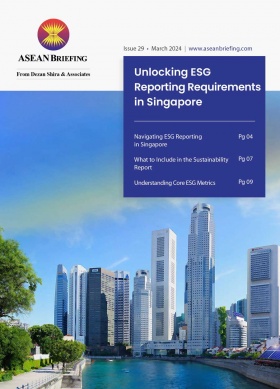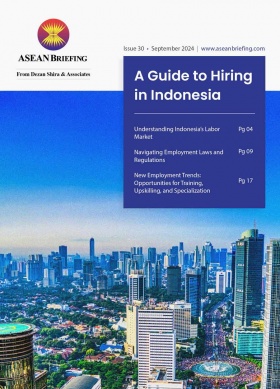National Wage Council Urges Wage Hike for Lower-Income Workers in Singapore
Singapore’s National Wage Council (NWC) has recommended that employees earning a monthly wage of up to S$2,500 (US$1,899) should be given salary increases of between 5.5 and 7.5 percent.
The NWC plays a key role in guiding wage policies to promote sustainable economic growth, fair labor practices, and equitable wage distribution. Established in 1972, the council comprises representatives from the government, employers, and unions. Its primary responsibilities include:
- Annual wage guidelines: The NWC issues annual guidelines on wage adjustments, particularly focusing on lower-wage workers and promoting productivity-linked wage increases. These guidelines are aimed at balancing economic stability with workers’ welfare;
- Promoting fair wages: The council advocates for wage practices that ensure fair compensation, addressing wage disparities across sectors and promoting inclusivity in economic growth. This includes recommending progressive wage increases and focusing on closing the income gap;
- Productivity and skills development: The NWC emphasizes the link between wage growth and productivity, encouraging workers and employers to invest in skills training and productivity enhancements. This aligns wages with an individual’s contribution to the economy, ensuring long-term competitiveness;
- Economic and labor market stability: By issuing wage recommendations based on economic conditions, the NWC stabilizes the labor market. During economic downturns, for example, the council may advise wage restraint to protect jobs and economic resilience; and
- Social Cohesion: As a tripartite body, the NWC fosters cooperation among the government, employers, and unions, creating a consensus-driven approach to wage policies. This enhances social cohesion by aligning the interests of different stakeholders for overall societal benefit.
Near-term cost pressures
acknowledged the risk of intensified geopolitical conflicts and the possibility of prolonged tighter financial conditions. These factors contribute to the economic uncertainties in the NWC’s wage guidelines for next year.
Impact on businesses and how they should prepare
While the NWC’s recommendations are not legally binding, they significantly influence Singapore’s business landscape. Many companies voluntarily adhere to these guidelines, recognizing their role in shaping fair wage practices and supporting social cohesion. Implementing the recommended wage increases, especially for lower-income workers, can positively impact a company’s reputation, employee morale, and retention.
For businesses that have performed well, preparing to meet these guidelines involves evaluating their financial capacity to offer sustainable wage increases and bonuses. Adjusting budgets and focusing on productivity can help offset the impact of these wage adjustments. Companies experiencing financial challenges, however, are encouraged to exercise wage restraint, with management leading by example through salary moderation. This approach demonstrates a commitment to employee welfare while recognizing financial constraints.
To further align with the NWC’s recommendations, businesses should consider investing in skills development and productivity enhancements. By linking wage growth to productivity, companies can ensure sustainable operations and maintain competitiveness.
About Us
ASEAN Briefing is one of five regional publications under the Asia Briefing brand. It is supported by Dezan Shira & Associates, a pan-Asia, multi-disciplinary professional services firm that assists foreign investors throughout Asia, including through offices in Jakarta, Indonesia; Singapore; Hanoi, Ho Chi Minh City, and Da Nang in Vietnam; besides our practices in China, Hong Kong SAR, India, Italy, Germany, and USA. We also have partner firms in Malaysia, Bangladesh, the Philippines, Thailand, and Australia.
Please contact us at asean@dezshira.com or visit our website at www.dezshira.com and for a complimentary subscription to ASEAN Briefing’s content products, please click here.








